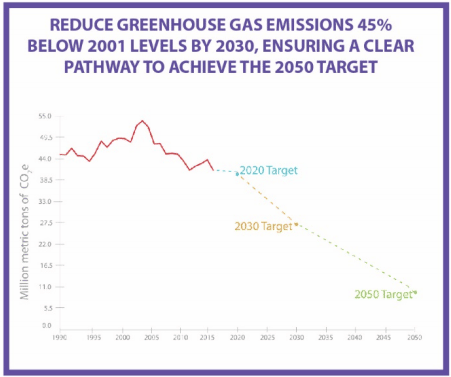Democratic Governor Dannel Malloy on Dec. 18 released a report detailing strategies from the Governor’s Council on Climate Change to help the state achieve its long-term vision for decarbonizing the economy. The recommendations center on three fundamental objectives of the vision – zero-carbon electricity, clean transportation, and building efficiency. Legislation enacted last year set a 2030 target of reducing emissions 45 percent below 2001 levels. The report notes that the mid-term target is one of the most ambitious in the nation and will ensure progress towards the 80 percent reduction that the Global Warming Solutions Act requires by 2050.
The report outlines a suite of strategies including implementing an economy-wide carbon fee that sets a price per ton of carbon emitted and a cap-and-invest program that sets a limit on emissions, allowing the market to determine a carbon price. Recommendations also include expanding consumer awareness to promote low-carbon technologies, and pursuing an integrated approach to mitigate greenhouse gases.
The report calls for efforts to harness and foster innovation by engaging private sector including leveraging limited public funds to mobilize private investment to develop solutions to cut emissions. Among other strategies, the report notes that climate change policymaking should assess co-benefits such as job growth and technology innovation.
The Council, established through an executive order in 2015, is tasked with examining existing policies and regulations designed to reduce emissions and identify new strategies to meet the established targets, and set interim goals to help achieve the 2050 target.






